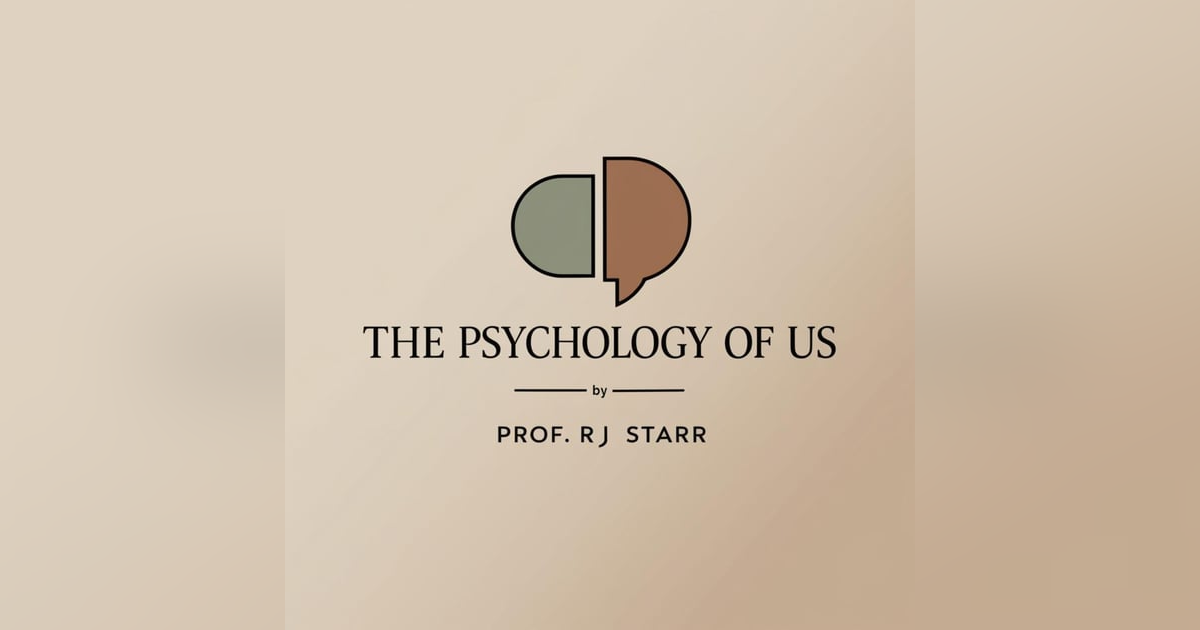I Could, But I’m Not Going To The Quiet Power of Values in Action

What does it actually mean to live by your values?
Not to write them down. Not to say them out loud. But to live them—especially when no one’s watching. Especially when you’re tempted to do otherwise.
In this episode of The Psychology of Us, Professor RJ Starr explores one of the most powerful forms of agency we rarely talk about: restraint. The kind that sounds like, “I could, but I’m not going to.”
That one sentence carries enormous psychological weight. It’s the difference between acting from impulse and acting from intention. It’s the difference between self-justification and self-authorship. It’s what transforms values from abstract ideas into lived identity.
This episode breaks the topic down into four segments:
1. The Misunderstanding of Values
Most people mistake values for traits or ideals, but values aren’t something you say you have—they’re something you prove through action. This segment explores how people inherit values unconsciously, how performative behavior often replaces principled living, and why values are only revealed when tested.
2. I Could, But I’m Not Going To
Restraint is often misunderstood as repression, but in reality, it’s one of the clearest signs of inner freedom. This segment looks at how agency is expressed through the conscious decision not to act on every urge, impulse, or rationalization. We examine the psychology behind deliberate inaction, and how those moments of restraint build internal strength and integrity.
3. Values as Identity Anchors
The more your decisions align with your core values, the more coherent your identity becomes. This segment explores the relationship between repeated values-based action and self-concept clarity. When your values shape your behavior—even when it costs you comfort, popularity, or short-term reward—you build trust in yourself that no external validation can replace.
4. The Trap of Rationalization and the Gift of Clarity
When people act out of alignment with their values, they rarely admit it. Instead, they rationalize. This segment unpacks the subtle ways we deceive ourselves in the name of convenience or image management—and how clarity is restored through radical self-honesty. The goal is not perfection, but coherence: making decisions that reflect the kind of life you want to live, not just the mood you’re in.
Throughout the episode, Starr brings together insights from psychology, identity theory, self-determination research, and behavioral neuroscience. The result is a grounded, emotionally intelligent reflection on what it means to practice values—not as ideals, but as daily, embodied choices.
If you’ve ever struggled to say no when it matters, or to stay centered when everything around you is pulling you in another direction, this episode is for you.
Because in a world that confuses reaction with freedom, values are the only real compass.
And sometimes, the most powerful thing you can say is:
I could.
But I’m not going to.
—
The Psychology of Us is hosted by Professor RJ Starr, a psychology educator, researcher, and author whose work explores emotion, identity, self-awareness, and the cultural forces shaping modern behavior.
New episodes every Tuesday. Available wherever you listen to podcasts.
Website: https://profrjstarr.com/the-psychology-of-us
#thepsychologyofus, #profrjstarr, #values, #identity, #psychology, #selfawareness, #integrity





